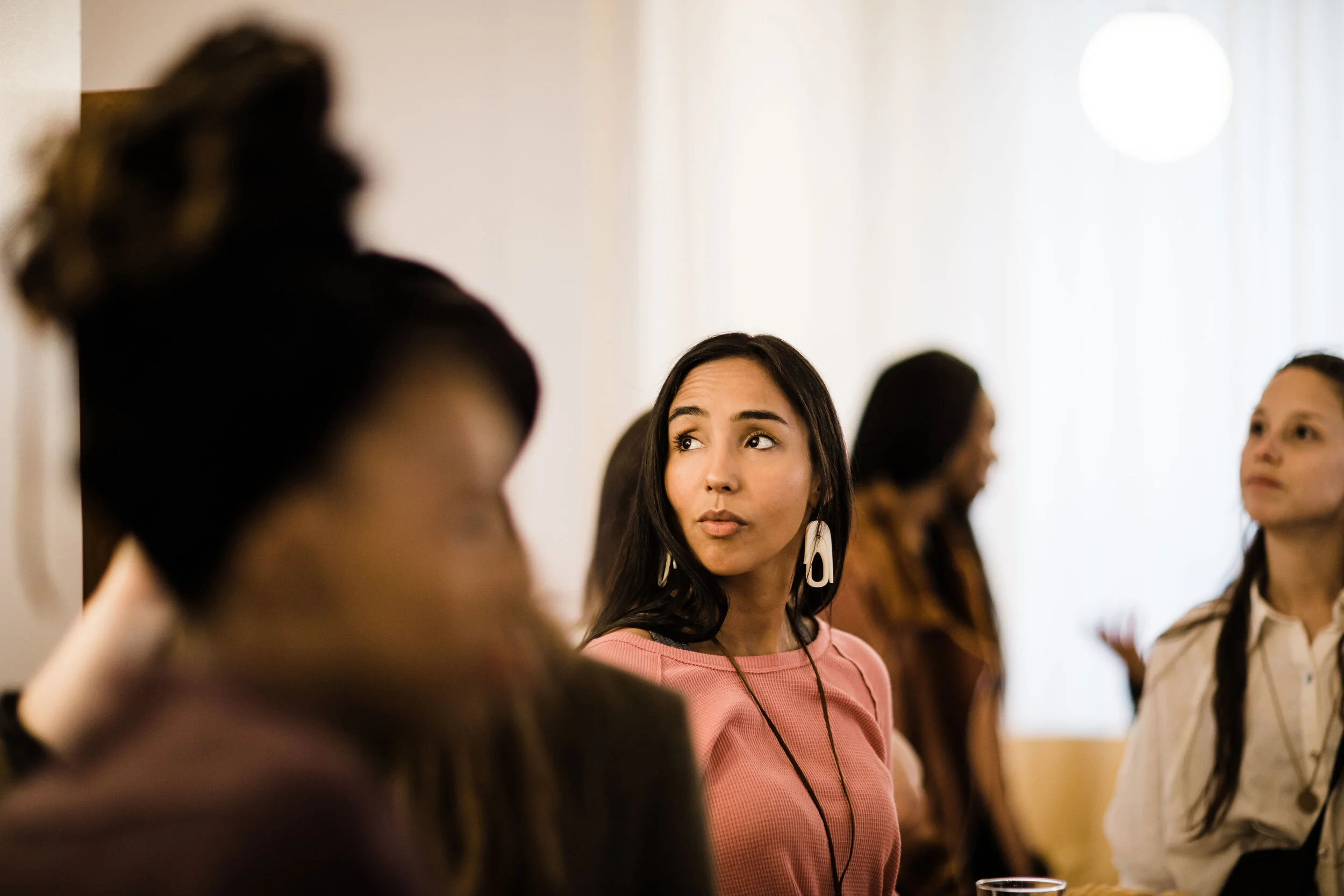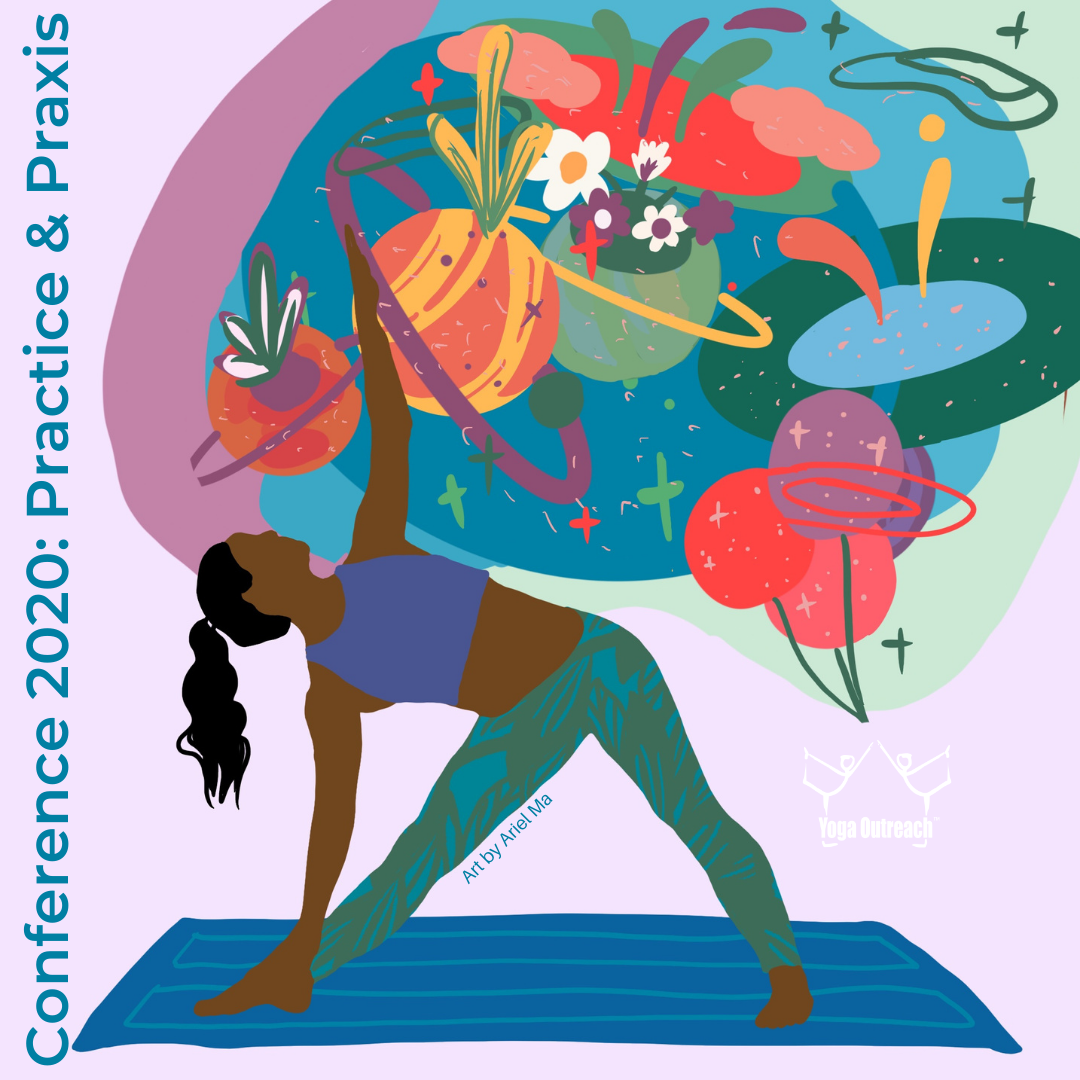Grounded Together: Building Your Daily Practice in Community
Join a 4-week virtual workshop series this January to establish or deepen your daily wellness practice (sadhana). Through breathwork, yoga, meditation, and journaling, you'll nurture personal growth, build resilience, and foster connection in a supportive community. Live sessions Sundays 8-10 AM PDT, with replays available. Empower yourself with sustainable tools for mindfulness and self-care.
Join me on Thursday, December 7th at 12pm EST for an experiential Lunch & Learn workshop hosted by the Indigenous Primary Health Care Council - we will discuss how the practice of Yoga, breathwork, and trauma-informed strategies may be integrated with Indigenous community wellness programming. Read more for workshop and practice video details and a registration link.
Read MoreIt’s official! I am pleased to share I have successfully written and defended my doctoral thesis this past August 29th, 2023 to a committee of reviewers and supervisors. You can now read my thesis, titled": “Braiding Knowledge through breath, language, and movement: culturally rooted, trauma-informed Yoga for First Nations Women”
Read MoreBreathwork is an experiential tool and process that is as ancient as humanity itself. At its core, breathwork is a conscious and intentional breathing practice that taps into the natural rhythm of our breath to promote overall well-being and introspection.
This blog post will delve into the essence of breathwork, explore its numerous benefits, provide some precautions, and outline what to expect from a one-on-one session guided by the transformative 3-Part Active Breathwork technique.
Read MoreA glimpse into the Braiding Knowledge through breath, language, and movement film, directed by Jessica Barudin featuring the trailer edit by Cody Preston. This is a short documentary that features the First Nations Women’s Yoga advisory circle and team who are sharing the parallels of yoga and Indigenous ways of being. A celebration of First Nations women and their communities who are brought together through their love of yoga, healing, and reclamation of ancestral languages and lifeways. The film features a community wellness strategy that braids cultural and spiritual knowledge systems through a trauma-informed lens.
Read MoreI was honored to be invited to speak to this topic recently on CBC Unreserved with Rosanna Deerchild. If you haven’t seen the article or listened to the episode, I encourage you to check it out! Featured with Dr. Michael Yellowbird, a member of the Mandan, Hidatsa and Arikara Nations in North Dakota, is the dean of the faculty of social work at the University of Manitoba, who joined us as a guest faculty lead for our First Nations Women’s Yoga initiative in Cohort 2 (2022). Also featured in the episode is Tareyn Johnson, a member of Georgina Island First Nation, the director of Indigenous affairs at the University of Ottawa.
Read MoreWe create learning and community opportunities for all people who are in solidarity with Indigenous and South Asian women. We provide training and mentorship to Indigenous individuals and communities who wish to embrace yoga alongside their reclamation and embodiment practices. We support and increase the representation of Indigenous yoga teachers in our respective communities as well as in the wellness industry.
Read MoreI am excited to be invited to present at the annual Accessible Yoga Conference Online, October 14-17, 2021. The theme for this year’s conference is Elevating Voices, Embracing Change. My interactive workshop will share experiences developing a unique program alongside community partners, knowledge keepers, yogis, artists, and scholars that integrates trauma-informed strategies and foundations in yogic and Indigenous knowledge systems.
Read MoreThis initiative is in partnership between the Yoga Outreach Society and Cedar and Gold, co-directed by Jessica Barudin and Nicole Marcia. Our curriculum has been developed in collaboration with First Nations women, knowledge keepers, fluent speakers, and yoga educators. We are excited to announce that the FNWYI will commence the second cohort in February 2022!
Read MoreThrough my doctoral research, I have come across some incredible Black, Indigenous and People of Color researchers and authors. Here are some of their books I have loved to read to understand trauma, healing, and embodied practices.
Read MoreWhat are the thoughts, behaviours, and actions you would like to heal and reconcile with your body? Sharing a journaling prompt and entry I wrote in 2019 while participating in the Girlvana Yoga training in NYC. This is a powerful exercise to help us understand and connect with how we feel about our bodies.
Read MoreExploring trauma-informed yoga principles and approaches to yoga class sequencing. This post is a reflection offered to the First Nations Women’s Yoga cohort participants. Jessica shares some helpful tips from an Indigenous lens and offers some resources for those new(er) to teaching yoga.
Read MoreA 25-minute gentle, vinyasa yoga practice developed for women who have experienced and survived violence and trauma. This practice, Flowing with Creation connects us with the healing elements of the Ocean and the water within us. You can expect fluid flows, hip openers, ujjayi breathing to help calm and soothe the nervous system. Learn more about the Reaching Out With Yoga Project, led by Yoga Outreach in partnership with the BC Society of Transition Houses.
Read MoreClearly, there are many shortcomings of ceremony in the virtual space – we do not experience our senses as fully as we would while sitting in our Bighouse, kneeling in a Sweat Lodge, dancing in a Sundance Arbor, or singing together in circle. We do not feel with our whole bodies when we are sitting in front of a screen – perhaps this will take effort in building up our imagination and visualization capacity. Virtual ceremony is a process of connecting to the sacred by means of technology. It is an ambiguous space/time continuum that we can access to virtually and symbolically exchanging our vibrations with community and loved ones. It is a way we can feel connected, seen, heard, or ask for guidance from our cultural keepers and Elders.
Read MoreJessica Barudin will weave stories, Kwakwaka’wakw values, and research to describe Indigenous contemplative and meditative practices. She will offer reflections of healing intergenerational and historical trauma and strengthening community wellness through Yoga and Ceremony. She will speak to her experiences of co-creating trauma-informed curricula with First Nations womxn and the early impressions of her doctoral project “(Re)Connecting through women’s teachings, language and movement: Culturally-adapted yoga for First Nations Womxn and Girls”.
Read MoreRecently I learned from a Nuu-chah-nulth Elder and medicine man, Dave Frank, who marveled at how our brains are intelligent by design, by stating “Our brains are so smart. Our brains can block out trauma and repress the memories - but our body, our organs and our skin hold the memory of that trauma. That trauma memory lives in the cells until we release it” (oral communication, October, 2020). Trauma reorganizes the brain and how it manages perceptions and cognition by altering how we think, what we think about, and even the ability to think (Bessel van der Kolk, 2015).
Read More














